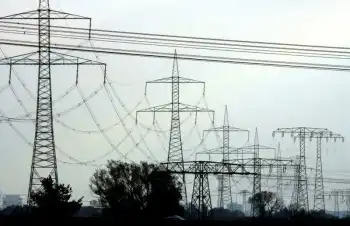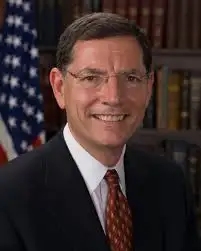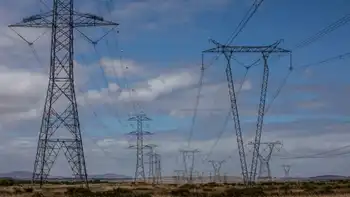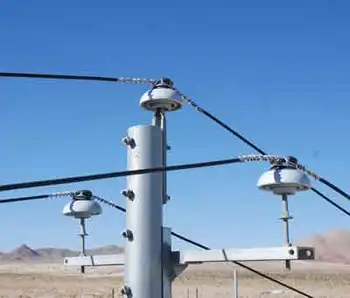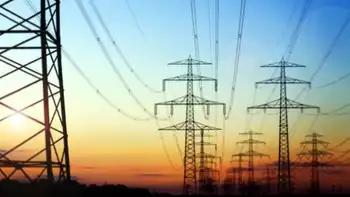EPA moves to regulate industrial greenhouse gases
By Associated Press
Substation Relay Protection Training
Our customized live online or in‑person group training can be delivered to your staff at your location.

- Live Online
- 12 hours Instructor-led
- Group Training Available
The EPA said it is completing a rule requiring large polluters to reduce the amounts of carbon dioxide and other greenhouse gases that they release into the air. Those emissions can boost many allergens and worsen smog, which can trigger asthma attacks and other respiratory ailments.
The rule would require companies to install better technology and improve energy efficiency whenever they build, or significantly modify, a plant.
EPA Administrator Lisa Jackson said the rule applies only to large polluters such as power plants, refineries and cement production facilities that collectively are responsible for 70 percent of greenhouse gas emissions from stationary sources in the United States.
Jackson said the rule sets commonsense standards that will clean the air and protect public health, while avoiding burdensome regulations that could harm farms and small and medium-sized businesses.
"There is no denying our responsibility to protect the planet for our children and grandchildren," she said in a statement. "It's long past time we unleashed our American ingenuity and started building the efficient, prosperous clean energy economy of the future."
The EPA announcement comes a day after an energy and climate bill was introduced in the Senate that seeks to accomplish many of the same goals. But EPA spokesman Brendan Gilfillan denied any connection, saying "rules are ready when they are ready."
The pollution rule will take effect in January, when industrial facilities that already obtain Clean Air Act permits for other pollutants will be required to obtain permits for greenhouse gases, if they increase those emissions by at least 75,000 tons per year.
Starting in July 2011, the rule would apply to any existing plant that emits at least 75,000 tons of greenhouse gases a year, or any new plant that emits 100,000 tons per year.
Emissions of 75,000 tons of carbon dioxide are equivalent to the annual emissions from 13,000 passenger vehicles, or the electricity use of about 8,200 homes per year, the EPA said.
The rule comes as Sens. John Kerry, D-Mass., and Joe Lieberman, I-Conn., made public a long-delayed bill aimed at curtailing greenhouse gas emissions. The bill would set a first-ever price on carbon dioxide emissions produced by coal-fired power plants and other large polluters.
The legislation aims to cut emissions of carbon dioxide and other heat-trapping greenhouse gases by 17 percent by 2020 and by more than 80 percent by 2050. Both targets are measured against 2005 levels and are the same as those set by a House bill approved last year.
The Obama administration has long said it would prefer that Congress pass a bill to cut greenhouse gas emissions but has used the threat of EPA regulation to push lawmakers in states heavily dependent on fossil fuels to support the climate bill.
Many large utilities and other energy companies have said they want Congress to act, believing they would be in a better bargaining position with Congress than in regulations issued by the EPA.
Even so, the energy bill faces a steep hill in the Senate. No Republican has signed on as a co-sponsor. Sen. Lindsey Graham, R-S.C., who had been working with Kerry and Lieberman, withdrew his support last week, saying it is impossible to pass the legislation in the current political climate.
The rule substantially raises the threshold amount of pollution required before greenhouse gas permits are needed. A proposal announced last September would have required permits for facilities that emit 25,000 tons per year.
Gina McCarthy, an assistant EPA administrator, said the change was made in response to complaints that the earlier proposal would have affected many small and medium-sized businesses, and even large apartment buildings. Such limits "clearly were not appropriate," she said.





